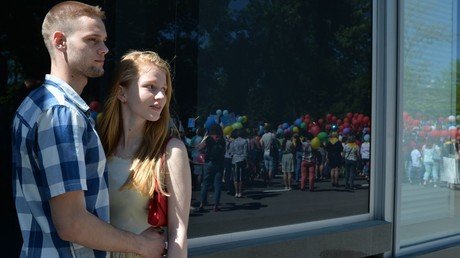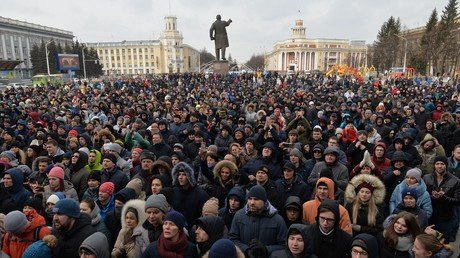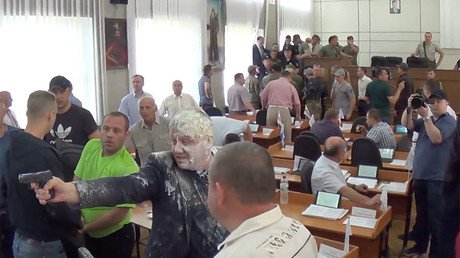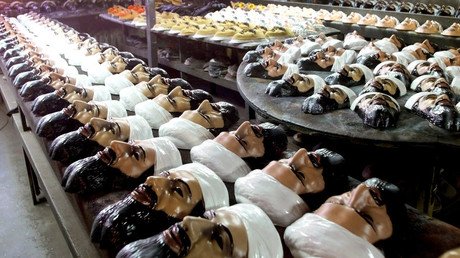Russians see return of superpower status as Putin’s main achievement in previous term
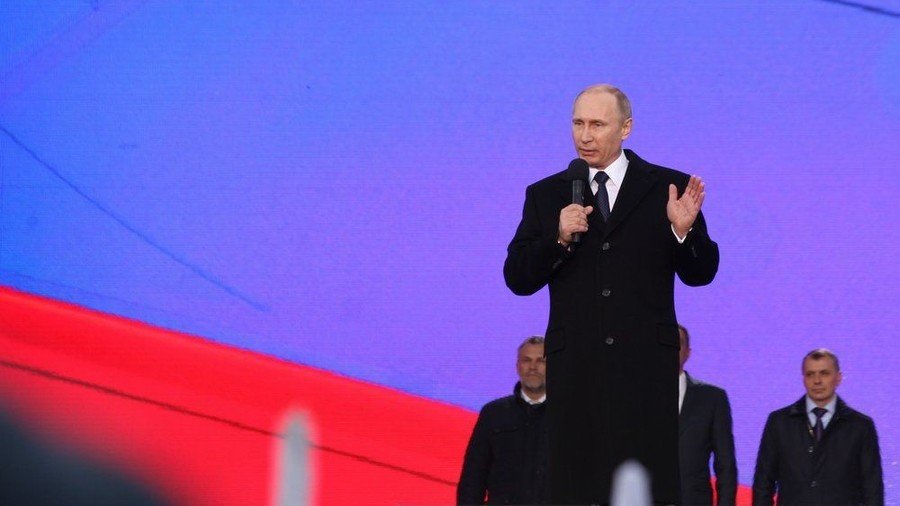
Russians have named internal stability and the return of superpower status to their country as main achievements of Vladimir Putin’s past presidential term, but urged improvement in policies targeting economic inequality.
In the latest poll conducted by an independent Russian public opinion research organization, Levada Center, ordinary Russians were asked what they saw as the main positive result of Putin’s work as Russian president during his third term, in 2012-2018. 47 percent of respondents named the “return of superpower status to Russia” as the main achievement of the country’s leader.
38 percent said it was the stabilization of the situation in the North Caucasus region, 27 percent named “prevention of the collapse of the Russian Federation,” 24 percent mentioned the increase in wages and pensions and 22 percent said it was the continuation of economic reforms in the country.
When researchers asked ordinary Russians what they would name as the most evident failures that happened in the course of Putin’s third presidential term, 45 percent said it was the inability to secure the just distribution of incomes among the country’s citizens. 39 percent also said they were discontent over the fact that the authorities could not compensate ordinary citizens for the losses that happened during the course of economic reforms of the 1990s.
32 more percent said the president could have done more in the field of increasing wages and pensions, 27 percent said that in their opinion the Russian authorities had failed to stop the economic crisis and the 27 percent were not satisfied with how the president handled the work of law enforcement agencies.
Vladimir Putin won the March 18 presidential elections with support of a record share of voters – about 77 percent of Russians voted for him to remain the leader of the nation. On Monday, Putin was sworn in as president for the next 6-year term.
A separate poll conducted by the state-run agency VTSIOM in early May showed that 82 percent of Russians currently approve of Vladimir Putin’s performance as president, with 13 percent saying that they disapprove of it and the rest remaining undecided over the issue.
At the same time, almost 90 percent of respondents said that in their opinion the country is in urgent need of major changes (59 percent said these changes should touch upon all spheres of life) and only two percent said that they were content with the current situation and did not want anything altered in any way.
